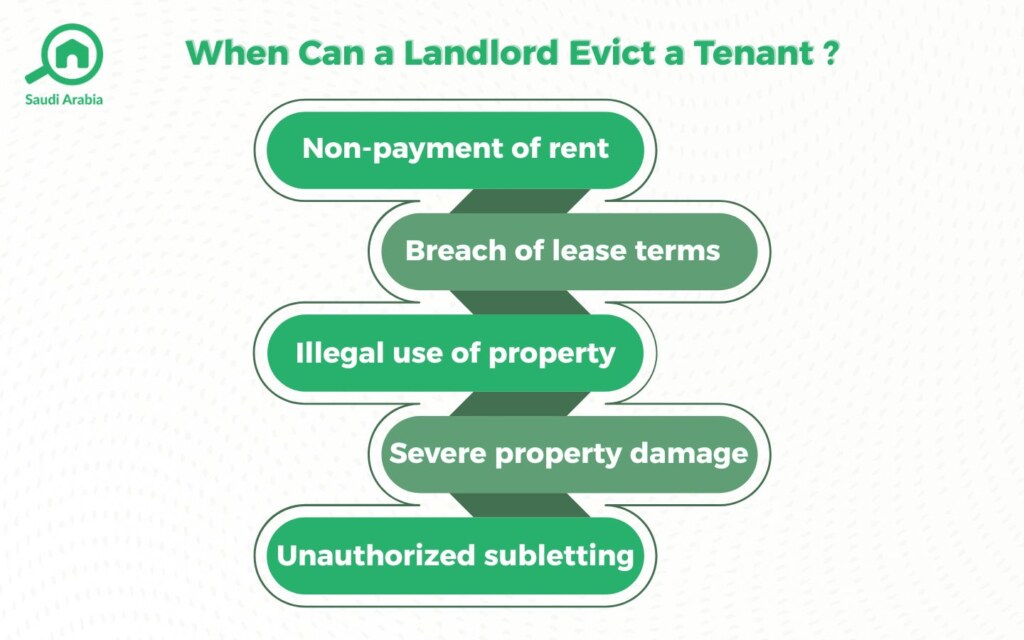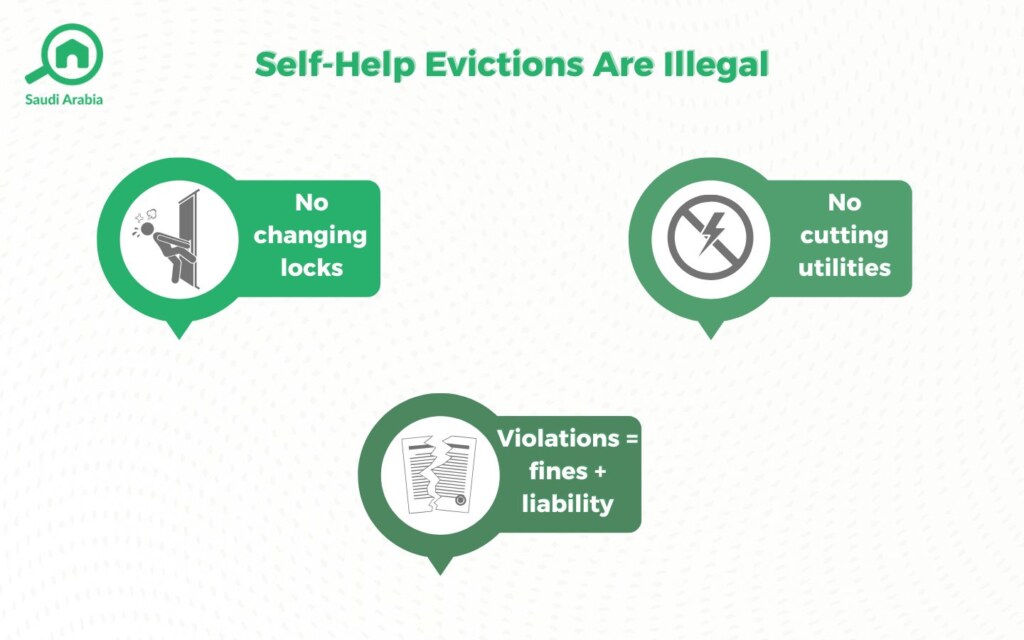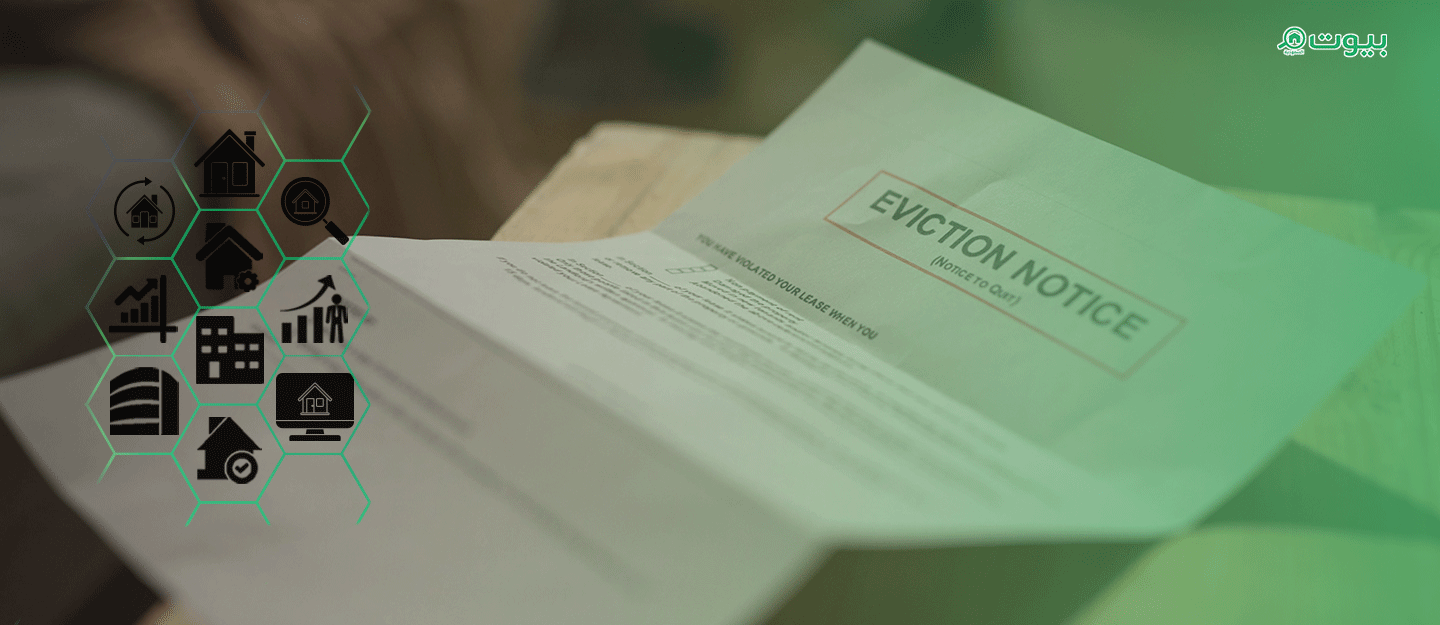Eviction of Property in Saudi Arabia is among the most serious actions a landlord can take against a tenant. In Saudi Arabia, eviction follows a framework of laws which aims to balance both the landlord and tenants rights. Whether you are a property owner or a tenant, knowing the legal grounds, procedures, and timelines is essential to avoid costly disputes. Here’s what you need to know to navigate property eviction in Saudi Arabia …
Landlord Rights in Eviction in Saudi Arabia
Landlords in Saudi Arabia can legally evict tenants under specific conditions. According to Saudi tenancy regulations, these stem mainly from Sharia law and detailed in the Tenancy Law issued by the Ministry of Municipal and Rural Affairs and Housing. The landlord can begin Eviction of Property in Saudi Arabia if:
- The tenant fails to pay rent within the agreed period
- The tenant breaches significant terms of the lease contract
- The property is used for illegal or unpermitted activities
- The premises are in danger of severe damage because of the tenant’s negligence
Landlords cannot evict tenants arbitrarily or skip due process. This ensures fairness for both sides, as well as provides protections for the tenants.

If you’re looking to rent in Saudi, check out Bayut’s Full Guide to Rent in Saudi Arabia.
Reasons for Tenant Eviction in Saudi Arabia
While not paying rent is still the most common reasons for Eviction of Property in Saudi Arabia – several other legitimate grounds also exist, including:
- Unauthorized subletting of the property to third parties
- Damaging the property beyond the normal wear and tear
- Using the property for purposes beyond the lease terms
- Lease expiry with tenant refusal to vacate
Landlords must carefully document violations to support their claims
Tenant Eviction Procedures in Saudi Arabia
Eviction is not an immediate action. Rather, it is a process that requires clear steps, as follows:
- Formal Notice of Eviction of Property in Saudi Arabia : The landlord must serve a written notice of default or violation to the tenant, giving them time to correct the issue..
- Filing a Claim: If the problem is not resolved, the landlord files a claim with the appropriate Saudi rental dispute committee or court.
- Hearing and Ruling: The court reviews the case, and both parties can present evidence and arguments.
- Judgment Enforcement: If the court issues an eviction order, it is referred to the Enforcement Court, and carries out the removal of the tenant.
You may also benefit from reading: Tenant Eviction Request via Najiz – A Complete Guide for Landlords in Saudi Arabia
How Long Does It Take to Enforce a Property Eviction Ruling in Saudi Arabia?
Timelines vary depending on case complexity and jurisdiction. Generally:
- From filing to judgment: Approximately 30-60 days, if there are no appeals or delays
- Enforcement after the ruling: Usually within 15-30 days once the Enforcement Court issues its order
However, if the tenant contests the judgment or requests time to vacate, it may take longer.

Can a Landlord Evict a Tenant?
Yes, a landlord can pursue Eviction of Property in Saudi Arabia – but only by following the legal process. Unlike in some countries, “self-help” evictions (such as changing locks or shutting off utilities) are strictly prohibited in Saudi Arabia and can result in fines or liability for damages.
Because of this, landlords are should:
- Keep clear records of payments, notices, and correspondence
- Adhere strictly to contract terms
- Consider mediation or formal dispute resolution before resorting to court
Fairness and Equality Rules the Eviction Process
The Eviction of Property in Saudi Arabia is a structured process that upholds justice and protects the rights of both landlords and tenants. Whether you are a property owner seeking to reclaim your premises or a tenant seeking to understand your rights, consulting the Tenancy Law and, when necessary, professional legal counsel can help you avoid losing time, money, and conflict.
Stay updated with Saudi Arabia’s real estate market, trends, and more, by following My Bayut.







